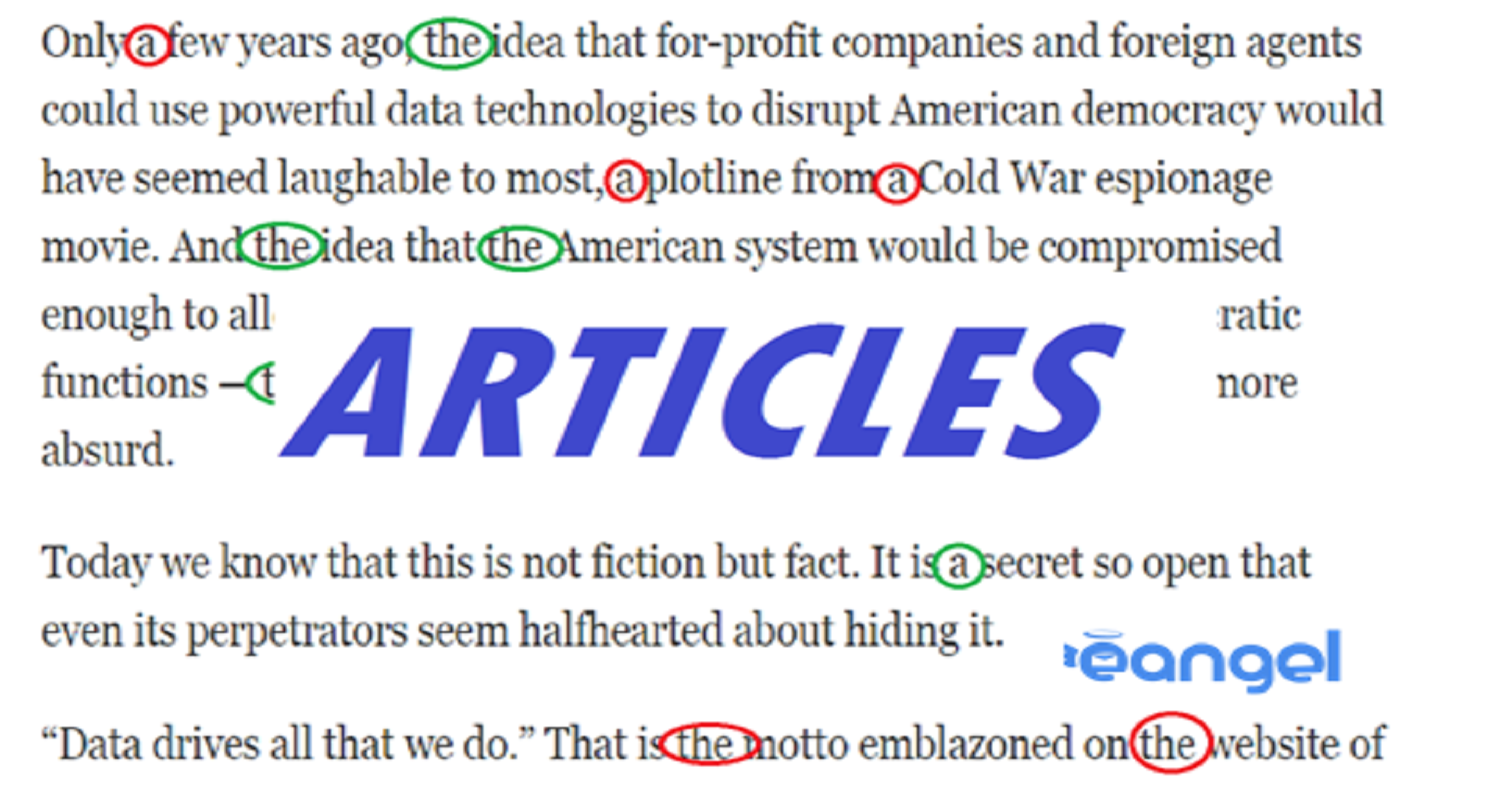Articles – English Notes – For W.B.C.S. Examination.
The flair of understanding literature is required. The knowledge of English is one aspect but critically examining the literary aspect is another or different angle to understand literature. If you are a beginner, you can start with summary of the stories with the help of following books. But, these are strictly recommended as supplementary books to develop interest or just to start.English is a very important part of W.B.C.S. Examination , covering a fair amount of the syllabus both in the prelims and the mains examination.English is full of confusing words that sound alike but are spelled differently.Regular practice and following previous years question papers can help in scoring a fair amount of marks in the W.B.C.S. Examination.Articles are words that define a noun as specific or unspecific. Consider the following examples:Continue Reading Articles – English Notes – For W.B.C.S. Examination.
By using the article the, we’ve shown that it was one specific day that was long and one specific cup of tea that tasted good.
By using the article a, we’ve created a general statement, implying that any cup of tea would taste good after any long day.
The Definite Article
The definite article is the word the. It limits the meaning of a noun to one particular thing. For example, your friend might ask, “Are you going to the party this weekend?” The definite article tells you that your friend is referring to a specific party that both of you know about. The definite article can be used with singular, plural, or uncountable nouns. Below are some examples of the definite article the used in context:
The Indefinite Article
The indefinite article takes two forms. It’s the word a when it precedes a word that begins with a consonant. It’s the word an when it precedes a word that begins with a vowel. The indefinite article indicates that a noun refers to a general idea rather than a particular thing. For example, you might ask your friend, “Should I bring a gift to the party?” Your friend will understand that you are not asking about a specific type of gift or a specific item. “I am going to bring an apple pie,” your friend tells you. Again, the indefinite article indicates that she is not talking about a specific apple pie. Your friend probably doesn’t even have any pie yet. The indefinite article only appears with singular nouns. Consider the following examples of indefinite articles used in context:
Exceptions: Choosing A or An
There are a few exceptions to the general rule of using a before words that start with consonants and an before words that begin with vowels. The first letter of the word honor, for example, is a consonant, but it’s unpronounced. In spite of its spelling, the word honor begins with a vowel sound. Therefore, we use an. Consider the example sentence below for an illustration of this concept.
Similarly, when the first letter of a word is a vowel but is pronounced with a consonant sound, use a, as in the sample sentence below:
This holds true with acronyms and initialisms, too: an LCD display, a UK-based company, an HR department, a URL.
Article Before an Adjective
Sometimes an article modifies a noun that is also modified by an adjective. The usual word order is article + adjective + noun. If the article is indefinite, choose a or an based on the word that immediately follows it. Consider the following examples for reference:
Please subscribe here to get all future updates on this post/page/category/website


 +919674493673
+919674493673  mailus@wbcsmadeeasy.in
mailus@wbcsmadeeasy.in







































































































